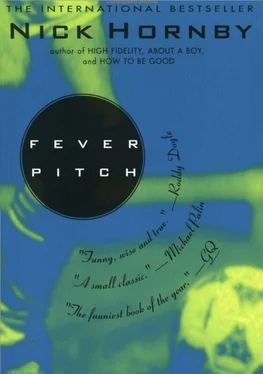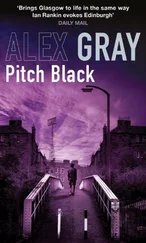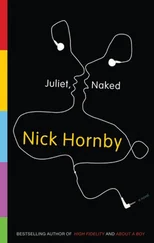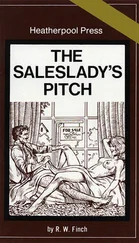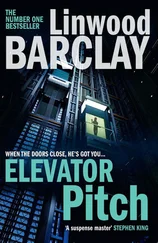But as it turns out, they are all wrong. So far he has leaped over every hurdle in his path comfortably, but even at this late stage it is possible to be tripped up. Probably the first time we notice that things aren’t right is in January 1987, in that first-leg semi-final against Tottenham: Caesar is painfully, obviously, out of his depth against those Spurs forwards. In truth he looks like a rabbit caught in headlights, frozen to the spot until Waddle or Allen or somebody runs him over, and then he starts to thrash about, horribly and pitifully, and finally George and Theo Foley put him out of his misery by substituting him. He doesn’t get another chance for a while. The next time I remember him turning out is against Chelsea at Stamford Bridge in a 1-1 draw, a week or two before the Luton final, but again there is a moment in the first half where Dixon runs at him, turns him one way, then the other, then back again, like your dad used to do to you when you were a really little kid in the back garden, and eventually strolls past him and puts the ball just the wrong side of the post. We knew that there was going to be trouble at Wembley, when O’Leary was out injured and Gus was the only candidate to replace him. Caesar leaves it late, but when the ball is knocked into the box seven minutes from time, he miskicks so violently that he falls over; at this point he looks like somebody off the street who has won a competition to appear as a centre-half in a Wembley final, and not like a professional footballer at all, and in the ensuing chaos Danny Wilson stoops to head the ball over the line for Luton’s equalising goal.
That’s it. End of story. He’s at the club for another three or four years, but he’s very much the last resort centre-back, and he must have known, when George bought Bould and then Linighan and then Pates, with Adams and O’Leary already at the club, that he didn’t have much of a future—he was the sixth in line for two positions. He was given a free transfer at the end of the 90/91 season, to Cambridge United; but within another couple of months they let him go too, to Bristol City, and a couple of months after that Bristol City let him go to Airdrie. To get where he did, Gus Caesar clearly had more talent than nearly everyone of his generation (the rest of us can only dream about having his kind of skill) and it still wasn’t quite enough.
Sport and life, especially the arty life, are not exactly analogous. One of the great things about sport is its cruel clarity: there is no such thing, for example, as a bad one-hundred-metre runner, or a hopeless centre-half who got lucky; in sport, you get found out. Nor is there such a thing as an unknown genius striker starving in a garret somewhere, because the scouting system is foolproof. ( Everyone gets watched.) There are, however, plenty of bad actors or musicians or writers making a decent living, people who happened to be in the right place at the right time, or knew the right people, or whose talents have been misunderstood or overestimated. Even so, I think there is a real resonance in the Gus Caesar story: it contains a terrifying lesson for any aspirants who think that their own unshakeable sense of destiny (and again, this sense of destiny is not to be confused with arrogance—Gus Caesar was not an arrogant footballer) is significant. Gus must have known he was good, just as any pop band who has ever played the Marquee know they are destined for Madison Square Garden and an NME front cover, and just as any writer who has sent off a completed manuscript to Faber and Faber knows that he is two years away from the Booker. You trust that feeling with your life, you feel the strength and determination it gives you coursing through your veins like heroin … and it doesn’t mean anything at all.
ARSENAL v SHEFFIELD WEDNESDAY
21.1.89
It made sense to move into the area, for other reasons too: your money goes a lot further in decrepit areas of north London than it does in Shepherd’s Bush or Notting Hill, and the public transport up here is good (five minutes from King’s Cross, two tube lines, millions of buses). But really, living within walking distance of the ground was the fulfilment of a pitiful twenty-year ambition, and it’s no use trying to dress it up in logic.
It was fun looking. One flat I saw had a roof terrace which overlooked a section of the front of the stadium, and you could see these huge letters, “RSEN”, no more than that but just enough to get the blood pumping. And the place we got gazumped on was on the route that the open-top bus takes when we win something. The rooms were smaller and darker than the ones we have now, but the living-room window framed the entire West Stand; I would have been able to pause, during the writing of this book, look out, and return to the Amstrad refreshed.
In the end we had to settle for somewhere a little less spiritual overlooking Finsbury Park, and even if you stand on a stool and stick your head out of the window you can’t see anything, not even the Barclays League pennant which at the time of writing (although not, I fear, for much longer) is still ours to flutter. But still! People park their cars in our road before the game! And on a windy day the tannoy is clearly audible, even from inside the flat, if the windows are open! (I don’t know about the audibility of roars, obviously, because I am never at home when the team are, but I would like to think that the noisier celebrations make it this far. Maybe one day I will borrow my brother-in-law’s smart Sony recorder, place it on the chair by the TV under the window and let it run, just out of interest.) And best of all, just a few days after moving in, I was walking down the road— this really happened— and I found, just lying there, filthy dirty and somewhat torn but there nonetheless, a twenty-year-old Peter Marinello bubblegum card. You cannot imagine how happy this made me, to know that I was living in an area so rich in archaeological interest, so steeped in my own past.
As we turned the corner into our new street, the rental-van radio brought us news of a Kevin Richardson goal at Goodison Park, the third in an eventual 3-1 win ( and Everton’s goal never crossed the line), which seemed like a pretty good omen. But I was waiting for the following Saturday, my first ever home home game against Sheffield Wednesday, when finally, at the age of thirty-one, I would walk down Avenell Road, through the turnstiles and on to the North Bank as a north Londoner.
What was I expecting to find, when I opened the front door on to the street at twenty to three (twenty to three!) that Saturday afternoon and turned right towards the ground? I imagine I thought it was going to be like one of those sitcom depictions of suburbia, with all the identical front doors opening at precisely the same time, and identically dressed men marching down the street together, clutching identical briefcases, brollies and newspapers. In my street, of course, it would be Arsenal supporters, rather than commuters, who emerged, and they would all be wearing flat caps and faded bar-type red-and-white scarves. And they would see me and smile and wave, and I would immediately become a much-loved and valued member of a happy, working-class Arsenal community.
But no doors opened. Nobody supports Arsenal in my street. Some of my neighbours are what used to be known, years ago, as yuppies, and they have no interest in football; others are transients, squatters or short-lease tenants, never around for long enough to acquire the taste for it. The rest of them … I don’t know. You can’t come up with a theory for everyone, and there’s no accounting for taste. All I know is that there used to be one other fan in our street, a young lad who wandered around in an away shirt, but he moved soon after we got here; and apart from him I could have been back in Maidenhead, were it not for the cars cruising up and down, looking for a matchday parking space.
Читать дальше
